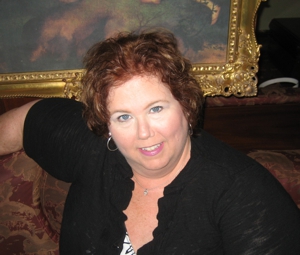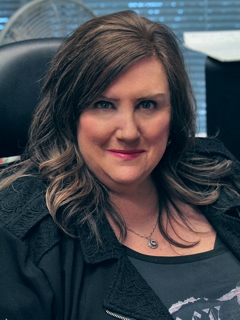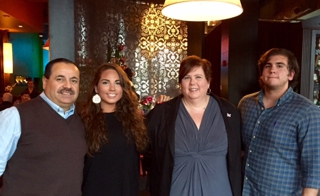People with untreated, advanced non-small cell lung cancer (NSCLC).
Results from the phase III CHOICE-01 clinical trial in China show that adding the immunotherapy drug toripalimab (TuoYi) to chemotherapy in people with untreated, advanced NSCLC slowed cancer growth and helped them live longer, particularly if their tumors had certain biomarkers, which are mutations, genes, or patterns found in a tumor’s DNA.
NSCLC is the most common kind of lung cancer, and treatment for advanced NSCLC often includes immunotherapy. Toripalimab targets the PD-1 protein expressed on immune cells. PD-1 interacts with a protein called PD-L1. PD-L1 helps cancer cells hide from the immune system, and people with advanced NSCLC often have higher levels of PD-L1. By blocking the interaction between the PD-1 and PD-L1 proteins, toripalimab helps immune cells find and destroy cancer cells.
This study included 465 Chinese participants with untreated advanced NSCLC with no specific mutations, or changes, in the epidermal growth factor receptor (EGFR) or anaplastic lymphoma kinase (ALK) genes. Of the participants, 309 received chemotherapy with toripalimab and 156 received chemotherapy with a placebo. The median age of the participants was 63 in the toripalimab combination group and 61 in the chemotherapy plus placebo group, and the majority of participants in both groups were men.
The study found that, regardless of PD-L1 expression levels, adding toripalimab to chemotherapy stopped the cancer from growing for a median of 8.4 months, compared with 5.6 months for chemotherapy alone. At 1 year, the cancer had stopped growing in nearly 37% of participants receiving toripalimab plus chemotherapy, compared with about 17% of participants who received chemotherapy plus placebo. The toripalimab combination also helped patients live longer than those who received chemotherapy alone, but the researchers did not have enough data to calculate the difference between the 2 treatments.
The researchers also found that the toripalimab combination worked better if the cancer cells had a high overall number of gene mutations, which is called high tumor mutational burden. Among participants with cancer with a high tumor mutational burden who received toripalimab plus chemotherapy, the cancer stopped growing for a median of 13.1 months, compared with 5.5 months among those with a high tumor mutational burden who received chemotherapy alone.
Serious side effects occurred at similar rates in both groups. The most common side effects for each treatment were blood-related problems. However, more participants in the toripalimab combination group stopped treatment because of the side effects (about 14% of participants) than those receiving chemotherapy plus placebo (about 3% of participants). Serious side effects led to death among 5.5% of participants receiving the toripalimab combination, compared with 2.6% of participants in the other group.
My normal morning suddenly became life-changing for me. I found a lump in my left breast and noticed that I also had a nipple retraction. I called my sister, Sharon, and told her that I believed I may have breast cancer. Later at work, I used my lunch break to go to see my doctor, who, confirmed my suspicion.
I’m a specialist with CDC’s National Center for Health Statistics in Maryland, and dealing with statistics is my job. However, this time statistics became personal for me. I was diagnosed with breast cancer on March 22, 2012, at just 46 years old. I’m happy to say that was three years ago. Now, I’m in the category of cancer survivor, and I’m determined to stay cancer-free.
It hasn’t been easy. I’ve gone through bouts of fear, anxiety, and disappointment on my way back to wellness. I was so scared. I was horrified, and when I found out that several of the cancer treatments would not work for me, I was devastated. Waiting between treatments was very hard too, knowing the cancer was still in my body. Chemotherapy was horrible. So, during treatment, all I could think about was getting through it. Then, after that was over, my focus was on recurrence and possibly getting cancer in my other breast.

breast cancer survivor: “I feel blessed by all the love and support, and the quality of medical care that I have received.”

Traci’s older sister, Sharon, said she is doing whatever it takes to keep Traci safe during her recovery.
As a cancer survivor, I sometimes have mixed feelings about my future. People say, “Oh, no one dies from breast cancer anymore,” but I know that’s far from the truth! Also, I will have to take medication for seven more years. I have many challenges being on the medication, but I feel it is important to follow doctors’ orders.
On the other hand, I have been able to regain my happy life. My diagnosis has given me a greater appreciation for life. Survivorship has made me different in many ways, physically and emotionally. For me the key for dealing with these challenges and changes is to remain confident that this too shall pass. I do my best to be positive and to embrace the loving support of my family.
I feel that life is very precious, and I am grateful for every day I am given. So, I try to think about how I am blessed, and that I have made it now 3 years. Thank God that I have a wonderful support system in Tony, my husband of 29 years; two children, Elizabeth, 19, and Diego, 22; and Sharon, my awesome sister who is by my side day in and out. My family is very supportive in any way I need them to be. Thank God, too, for my wonderful and understanding supervisors and coworkers at my job. Their support for me is amazing. And of course, finding a good team of doctors is very important. I’m fortunate that my health insurance has been very good.
I’ve learned to laugh in the midst of my journey. Surviving cancer and losing my hair has been a very hard thing for me! When my hair started coming out, I immediately went to my hair salon and had it shaved off. As I am sitting in the chair laughing because seeing myself bald reminded me of my brother, I see my sister is crying. I said, “Don’t cry, it’s only hair!” Looking back know, I am able to say hair is only hair. It doesn’t make me who I am. Still, I’m very happy that finally my hair grew back.
Honestly, being a cancer survivor has been both educational and horrific! Still, I do feel blessed by all the love and support and the quality of medical care that I have received.

Traci’s support system is anchored by her family. Left to right: husband Tony, daughter Elizabeth, Traci, and son Diego.
People with untreated advanced melanoma
What did this study find: A new report from the global phase II/III RELATIVITY-047 clinical trialshows that a combination of the immunotherapy drugs relatlimab and nivolumab (Opdivo) remains effective in slowing the growth of untreated advanced melanoma. The combination treatment may also shrink the melanoma and help people with this disease live longer compared with nivolumab alone.
Immunotherapy is a type of cancer treatment that boosts the body’s natural defenses to fight cancer. Nivolumab is a PD-1 immune checkpoint inhibitor that helps the body’s immune system target and destroy melanoma cells. Relatlimab is a type of immunotherapy that targets the lymphocyte-activation gene 3 (LAG-3). The LAG-3 gene controls a pathway that reduces the function of immune cells called T cells. Relatlimab releases the limits put on T cells by LAG-3. In this study, the researchers wanted to find out if targeting both PD-1 and LAG-3 pathways at the same time could slow or stop the growth of the melanoma, shrink the cancer, and help patients live longer.
This study included 714 people from around the world with untreated melanoma that was either metastatic or could not be treated with surgery. Of the participants, 355 received the combination of relatlimab with nivolumab, and 359 received nivolumab alone. The median follow-up was just over 19 months. The median is the midpoint, meaning half of the people were followed for fewer than 19 months and the other half were followed for more than 19 months.
The study found that, in keeping with earlier results, the combination treatment slowed or stopped the cancer from growing for a median of 10.2 months, which is more than twice as long as for nivolumab alone, which was 4.6 months. The combination treatment may also help patients live longer. At 12 months, 77% of people receiving the combination treatment were still alive, compared with nearly 72% of those receiving nivolumab alone. At 24 months, nearly 64% of those receiving the combination were still alive, compared with about 58% of those receiving nivolumab.
More participants in the combination group also had their melanoma shrink or had no signs of melanoma in response to treatment. The overall response rate, which is the percentage of participants whose tumors shrank, was about 43% in the combination group compared with nearly 33% in the nivolumab alone group. Meanwhile, just over 16% of participants in the combination group had no signs of melanoma after treatment, compared with about 14% in the nivolumab alone group.
The combination treatment did cause more side effects, including serious side effects. Among those receiving the combination treatment, just over 1 in 5 experienced a serious side effect (21.1%), and 4 people died related to the treatment in this group. Of the participants who received nivolumab alone, just over 1 in 10 experienced a serious side effect (11.1%), and 2 people died related to the treatment. Side effects of any severity caused about 15% of people to stop receiving the combination treatment and about 7% of people to stop receiving nivolumab alone.
It’s tempting to want to avoid talking about addressing problems. Yet not talking about a problem will not make it go away. In general, it’s much better to actively address the problem. Here’s the difference:
When people don’t talk about their feelings, they may act on those feeling in ways they regret later, with hostile, impulsive or irresponsible behaviors. However, it is important not to confuse restraining behavior with suppressing your feelings. Awareness of your own feelings is important for better mental health.
For example: If you fear that your partner will be turned off by your breast reconstruction or your colostomy bag, you may avoid getting into a sexual situation, or you may even pick a fight to make sure your partner will not be interested in sex. It would be much better if you could find a quiet time and ask to have a talk for a few minutes. Tell your partner your worry and let your partner respond. Talk about how to make sex feel safe and comfortable for both of you.
To find healthy ways to deal with the normal stressful feelings that accompany treatment, you must:
Here at the Cancer Support Community you can find that you are not alone, regain a sense of control, and learn there is always hope.
The next few weeks will be a busy time, as you face decisions about your treatment and care. Navigating the health care system – the tests, doctor’s appointments, figuring out insurance and more – can feel overwhelming. But, it is ok to ask for help.
One of the first things to do is think about who in your life is a helping presence. It might be your spouse or partner, friends, faith community, support group or co-workers. Make a list of specific ways they can help.
If you are unsure of what to ask people to do, below are some questions to consider:
People on your health care team, particularly a nurse or social worker, can help you find resources for social, emotional and practical support.
An important decision you will make about your cancer treatment is choosing a doctor, a team and a cancer center that has the expertise to treat your cancer.
As you learn about your cancer diagnosis and treatment options, ask your doctor how soon you need to make a treatment decision. You may seek a second or even third opinion. Being able to talk openly and feel comfortable with your doctor, nurse, social worker, and other office or health care team staff is important. Here are some questions to consider asking as you choose your team:
About your cancer diagnosis:
About your cancer treatment:
Many of these family members will find they now need to take on the role of caregiver—something they have never done before.
Your main job will be to support and encourage your loved one as they learn about their cancer and make decisions about and then start their cancer treatments. What will this involve? Not all caregivers do all of the same things, but a survey of 66 caregivers who are part of our Cancer Experience Registry®
Becoming a caregiver may seem scary or overwhelming. Know that you are not alone: The Caregiver Action Network estimates that during any given year more than 65 million people in the U.S. spend about 20 hours each week caring for an ill, disabled or aged family member or friend.
There is a growing realization that caregivers need support, and there are programs and services that can help you as you care for your loved one. In fact, many caregivers decide to meet regularly with a social worker or join a family or caregiver support group to make sure they will have the time to talk about their own fears or worries. Support groups are also a good place to get information and advice about caregiving and cancer.
Remember: Sometimes the best thing you can do for your loved one is to just sit quietly together — be present, in the moment, sharing time.
At Cancer Support Community, “empower yourself” is a phrase we use to describe the ongoing process of making a personal effort to become educated about your cancer diagnosis, your cancer treatment, your health care team, and ways to improve your overall wellbeing. To become “empowered” means that you choose to adopt a series of actions, behaviors, and attitudes that can improve the quality of your life. It’s not about making monumental changes but rather small incremental steps such as asking questions or self-educating to gain a sense of confidence and control as you move forward with your cancer treatment.
Cancer is treated in a multidisciplinary way, meaning several different types of health care professionals will be managing your care. The selection of your oncologist and www.uchefoundation.org is one of the most important decisions you need to make and manage throughout your treatment for cancer. An effective treatment for cancer requires a considerable effort by both you (the patient), and your physician. Forming a strong relationship with your cancer care team will be crucial to managing your cancer journey.
Your active participation in the choices you make with your health care team can make a big difference in your cancer experience and quality of life. One way you can do this is to prepare a list of questions for each appointment. Also, be sure to ask for clarification of any terms you do not understand. If you do not feel like you will be able to develop a good relationship with your doctor, consider finding another one. And remember: It is always ok to get a second opinion on your diagnosis and treatment plan from another doctor.
Stay in the loop, subscribe to our
